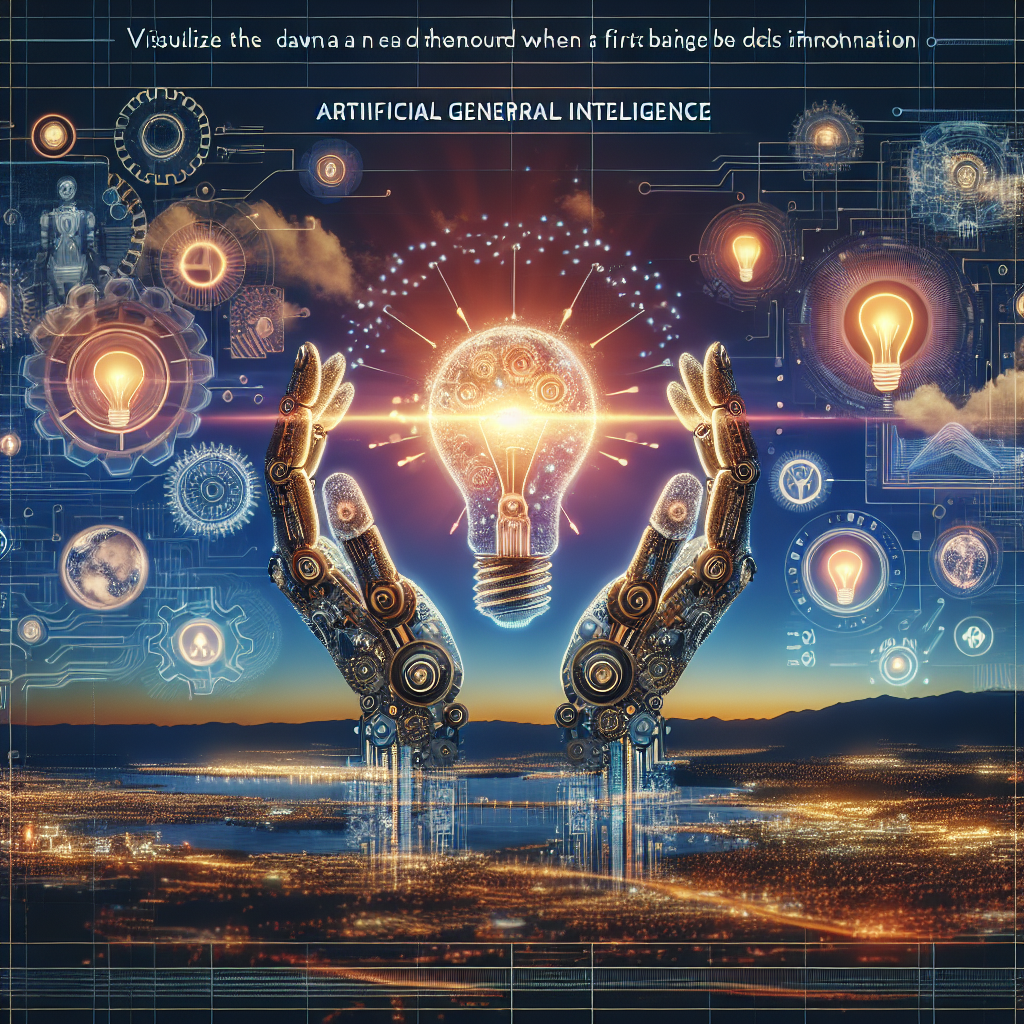Artificial General Intelligence (AGI) is a term that has been gaining momentum in recent years as the next frontier of artificial intelligence. Unlike narrow AI, which is designed for specific tasks such as speech recognition or image classification, AGI aims to replicate the human ability to learn, reason, and adapt to a wide range of tasks and environments.
The potential of AGI is vast, with many experts predicting that it could revolutionize industries, drive economic growth, and even fundamentally change the way we live and work. In this article, we will explore the concept of AGI, its implications, and the possibilities it holds for the future.
What is AGI?
AGI refers to artificial intelligence systems that possess the ability to understand, learn, and apply knowledge across a wide range of tasks and domains. Unlike narrow AI, which is limited to specific tasks, AGI aims to replicate the general intelligence of humans, allowing machines to think and act in a more human-like manner.
AGI systems are designed to be autonomous and adaptive, capable of learning from experience, reasoning through complex problems, and making decisions in real-time. This level of intelligence is considered to be the ultimate goal of artificial intelligence research, as it has the potential to revolutionize a wide range of industries and applications.
Implications of AGI
The development of AGI has the potential to bring about a new era of innovation and possibilities. With machines capable of understanding and reasoning like humans, the scope of what AI can achieve is virtually limitless. Some of the key implications of AGI include:
1. Automation of complex tasks: AGI could automate a wide range of tasks that currently require human intelligence, such as problem-solving, decision-making, and creative thinking. This could lead to increased efficiency, productivity, and cost savings across industries.
2. Personalized services: AGI systems could provide personalized services and recommendations based on individual preferences, behaviors, and needs. This could revolutionize industries such as healthcare, finance, and retail, by delivering tailored solutions to customers in real-time.
3. Improved decision-making: AGI could help businesses and organizations make better decisions by analyzing vast amounts of data, identifying patterns, and predicting outcomes. This could lead to more informed and effective decision-making processes, leading to better results and outcomes.
4. Innovation and creativity: AGI systems could assist in the development of new products, services, and solutions by generating novel ideas, designs, and concepts. This could spark a wave of innovation and creativity across industries, leading to new breakthroughs and discoveries.
5. Enhanced communication: AGI could improve communication between humans and machines by enabling natural language processing, speech recognition, and emotion detection. This could make interactions with AI systems more intuitive, seamless, and engaging.
Challenges and Considerations
While the potential of AGI is vast, there are also significant challenges and considerations that need to be addressed. Some of the key challenges include:
1. Ethical and societal implications: AGI raises important ethical and societal questions, such as the impact on employment, privacy, security, and human rights. It is essential to consider these implications and develop frameworks to ensure that AGI is used responsibly and ethically.
2. Bias and fairness: AGI systems can inherit biases from the data they are trained on, leading to unfair and discriminatory outcomes. It is crucial to address bias in AI systems and ensure that they are fair and equitable for all users.
3. Safety and security: AGI systems have the potential to cause harm if they are not properly controlled or supervised. It is essential to develop robust safety measures, security protocols, and fail-safes to prevent unintended consequences and ensure the safe deployment of AGI.
4. Regulation and governance: AGI raises complex regulatory and governance challenges, as it is a disruptive technology with far-reaching implications. It is important to establish clear guidelines, standards, and policies to govern the development and deployment of AGI.
5. Transparency and accountability: AGI systems are often complex and opaque, making it difficult to understand how they make decisions and predictions. It is essential to ensure transparency and accountability in AI systems to build trust and confidence among users.
FAQs
Q: What is the difference between AGI and narrow AI?
A: AGI aims to replicate the general intelligence of humans, allowing machines to think and act in a more human-like manner. Narrow AI, on the other hand, is designed for specific tasks such as speech recognition or image classification.
Q: How close are we to achieving AGI?
A: While significant progress has been made in AI research, achieving AGI remains a complex and challenging goal. Experts predict that we may be decades away from developing true AGI systems.
Q: What are some of the potential applications of AGI?
A: AGI has the potential to revolutionize industries such as healthcare, finance, transportation, and education. It could automate complex tasks, provide personalized services, improve decision-making, spark innovation, and enhance communication.
Q: What are some of the ethical considerations of AGI?
A: AGI raises important ethical questions, such as the impact on employment, privacy, security, bias, and fairness. It is essential to consider these implications and develop frameworks to ensure that AGI is used responsibly and ethically.
Q: How can we ensure the safe deployment of AGI?
A: To ensure the safe deployment of AGI, it is essential to develop robust safety measures, security protocols, fail-safes, regulation, and governance. Transparency, accountability, and ethical considerations are also crucial in building trust and confidence in AI systems.
In conclusion, AGI represents a new era of innovation and possibilities, with the potential to revolutionize industries, drive economic growth, and fundamentally change the way we live and work. While there are significant challenges and considerations to address, the opportunities that AGI presents are vast and transformative. By addressing ethical, societal, and technical challenges, we can harness the power of AGI to create a more intelligent, efficient, and equitable future for all.

